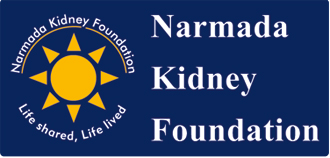Diabetes & Kidney Disease
Diabetes mellitus, usually called diabetes, is a disease in which your body does not make enough insulin or cannot use normal amounts of insulin properly. Insulin is a hormone that regulates the amount of sugar in your blood. A high blood sugar level can cause problems in many parts of your body.
Normal:
- Fasting blood glucose <100 mg/dl
- 2 hrs post meals/ glucose load <140 mg/dl
- Fasting blood sugar/ glucose >/= 126 mg/dl or
- Random blood glucose >/= 200 mg/dl.
- Two hour post meal blood glucose >/= 140 mg/dl
Yes, they are Type 1 and Type 2.
- Type 1 diabetes usually occurs in children. It is also called juvenile diabetes mellitus or insulin-dependent diabetes mellitus. In this type, your pancreas does not make enough insulin and you have to take insulin injections for the rest of your life.
- Type 2 diabetes is more common in people over age 40. It is also called adult onset or non insulin-dependent diabetes mellitus. In Type 2, your pancreas makes insulin, but your body does not use it properly. The high blood sugar level often can be controlled by following a diet, exercise and/or taking medication, although some patients require insulin.
People with following history are at higher risk of developing Type 2 Diabetes.
- Overweight- Body mass Index >/= 23 or >/= 14 kilograms over ideal body weight
- Family history of Diabetes Mellitus
- Inactive Lifestyle
- High blood pressure (140/90 mmHg or higher)
- Abnormal cholesterol (lipid) levels
- Delivered a large baby (4.5 kilograms or more) or had diabetes during pregnancy
High levels of blood sugar in blood vessels over time lead to high blood pressure & a variety of medical problems.
- The blood supply to various body parts decrease and this slowly starts damaging your heart, brain, eyes, kidneys, hands and legs. This leads to heart attack, paralytic attack, blindness, kidney disease and gangrene of hands and feet.
- Diabetes can also cause damage to nerves in your body, due to which you may feel tingling and numbness (lack of touch and pain sensation) of hands and/or feet. You can get wounds which may go unnoticed due to lack of pain if there is nerve damage.
People with diabetes are:
- 2-4 times more prone to heart disease
- 17 times more prone to kidneyDisease
- 15-20 times more prone to nerve damage and lower limb amputation
- 25 times more prone to vision loss from eye disease
- With diabetes, the small blood vessels in the body are injured. When the blood vessels in the kidneys are injured, your kidneys cannot clean your blood properly. Your body will retain more water and salt than it should, which can result in weight gain and ankle swelling. You may have protein in your urine. Waste materials (eg.BUN and creatinine ) also build up in your blood.
- Diabetes also may cause damage to nerves in your body including nerves controlling bladder muscle. This can cause difficulty in emptying your bladder.
- If urine remains in your bladder for a long time, you can develop an infection from the rapid growth of bacteria in urine that has a high sugar level.
- Albumin/protein in the urine
- High blood pressure
- Ankle and leg swelling, leg cramps
- Going to the bathroom more often at night
- High levels of BUN and creatinine in blood
- Less need for insulin or diabetic medicines
- Morning sickness, nausea and vomiting
- Weakness, paleness and anemia
- Itching
- Manage your diabetes better with:
- Home monitoring of your blood glucose levels
- Follow your special diet.
- Regular exercise.
- Control high blood pressure
- Get prompt treatment for any urinary tract infections
- Correct obstruction to the flow of urine if any.
- Avoid any medications that may damage the kidneys (especially pain killer medications, alternative therapies etc.)
- The use of some medications have been shown to reduce the amount of protein spill from kidneys and help prevent progression of kidney disease. Your doctor will guide you, when these are needed.
Goals of Diet therapy in Diabetes
- To attain and maintain Ideal Body Weight
- To meet the individual’s need for essential nutrients.
- To facilitate normal growth and development in a juvenile diabetic patient and a fetus of diabetic pregnant women.
- To maintain serum glucose level as close to normal as possible and prevent complications.
- To reduce Serum Lipid levels.
- Depending upon whether you are on oral hypoglycemic medicines or insulin you will be prescribed a 4 or 6 meal pattern. Regularity in taking the meals is important to avoid high fluctuations in blood sugar.
- Curtail on saturated fat (Ghee, Butter etc.)
- Fibre diet is essential. High fibre diet decreases insulin requirement.
- Of recommended carbohydrates per day more should be complex carbohydrate than simple sugars as they are gradually absorbed.
Exercise helps in managing blood glucose & weight effectively. It also improves your circulation, lowers blood pressure, relives stress and overall improves health. It makes you feel more energetic & strong.
Exercise tips :
- Beginners should at first, exercise for 5 to 10 minutes thrice a week. When you are ready, exercise longer and more often.
- To maintain proper glucose levels, have about 30-60 minute workout.
- If you want to exercise after a meal, give a gap of one hour after eating.
- Always carry a candy or peppermint with you.
- If you experience trembling, dizziness, sweating and hunger, stop immediately.
- Wear shoes that fit well.
